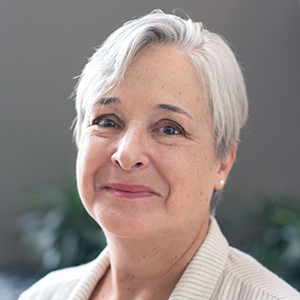Ending an elemental year
Readers of a certain age may remember Tom Lehrer’s song “The Elements,” in which the then-Harvard math professor and musical satirist patter-sang, a la Gilbert and Sullivan, the name of every element in the periodic table.
When I was a musical theater nerd in high school, I co-directed a musical revue in my senior year. The other directors and I thought we had the whole thing precast, but during auditions, a hitherto unremarkable singer bowled us over with her rendition of this serious tongue twister. (You can hear for yourself how impressive this was.) We borrowed a lab coat and a wall-sized copy of the periodic table from the school’s science department to hang behind her. At every performance, that song brought the house down. The big chart disappeared after closing night, and one of my fellow directors either had to pay for it or forfeit her diploma.
That was the last time I thought about the periodic table until an ASBMB Today planning meeting late last year when Quira Zeidan, the society’s education and public outreach coordinator, told us that 2019 was the 150th anniversary of the year Dmitri Mendeleev first published his tabular display of the elements.
She wasn’t just sharing science trivia. In her heart of hearts, Quira is a teacher, and she offered to write a series of articles for ASBMB Today highlighting elements of significance in the biochemical realm.
There’s nothing an editor likes better than the promise of a timely series (and guaranteed content), so I was delighted, but Quira gave us something more than that. As regular ASBMB Today readers know, she has provided a wonderfully coherent series of lessons that clearly explain everything from where the elements originate to their roles in human health. Every month, I’ve looked forward to learning something new from this series. And in this issue, with nickel and zinc, I’m sad to see it end.
This month may mark the end of the (bio)chemical elements in ASBMB Today, but plans are afoot to build educational programs around these 11 articles — complete with experiments. If this resource would be useful to you or any of your colleagues, contact Quira.
Thanks to all our readers for celebrating the International Year of the Periodic Table with us — and thank you, Quira, for being as cool a teacher as Tom Lehrer.
Enjoy reading ASBMB Today?
Become a member to receive the print edition four times a year and the digital edition monthly.
Learn moreGet the latest from ASBMB Today
Enter your email address, and we’ll send you a weekly email with recent articles, interviews and more.
Latest in Opinions
Opinions highlights or most popular articles

Sketching, scribbling and scicomm
Graduate student Ari Paiz describes how her love of science and art blend to make her an effective science communicator.

Embrace your neurodivergence and flourish in college
This guide offers practical advice on setting yourself up for success — learn how to leverage campus resources, work with professors and embrace your strengths.

Survival tools for a neurodivergent brain in academia
Working in academia is hard, and being neurodivergent makes it harder. Here are a few tools that may help, from a Ph.D. student with ADHD.

Hidden strengths of an autistic scientist
Navigating the world of scientific research as an autistic scientist comes with unique challenges —microaggressions, communication hurdles and the constant pressure to conform to social norms, postbaccalaureate student Taylor Stolberg writes.

Black excellence in biotech: Shaping the future of an industry
This Black History Month, we highlight the impact of DEI initiatives, trailblazing scientists and industry leaders working to create a more inclusive and scientific community. Discover how you can be part of the movement.

Attend ASBMB’s career and education fair
Attending the ASBMB career and education fair is a great way to explore new opportunities, make valuable connections and gain insights into potential career paths.

